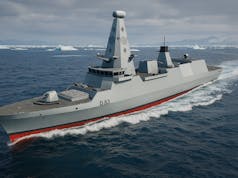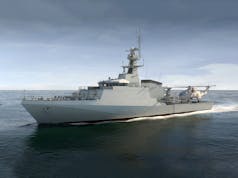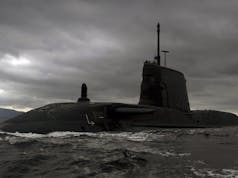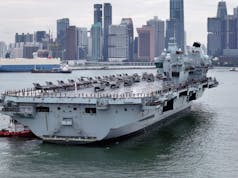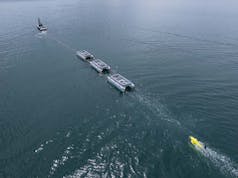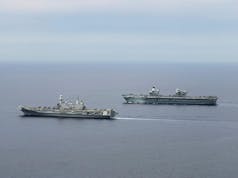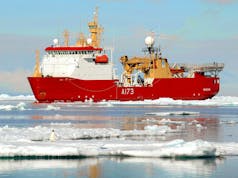BMT has been awarded a significant contract by the Ministry of Defence (MoD) to offer hydrodynamic marine simulator training, designed to enhance safety, operational efficiency, and readiness for Admiralty Pilots and Tug Masters operating the Queen Elizabeth-class aircraft carriers.
This comes as part of a multi-year agreement that will see BMT aiding in the transformation of future navigation training.
It involves the use of a suite of five fully networked ship and tug bridge simulators, which the pilotage and tug teams will fully optimise to practice complex manoeuvring and berthing strategies.
Dr Phil Thompson, Maritime Products Director at BMT, expressed the company’s gratitude for the trust placed by the MoD. “BMT is very proud by the trust and confidence displayed by the Ministry of Defence through the award of this contract to transform and deliver training to the Admiralty Pilots and Tug Masters of the Queen Elizabeth-class aircraft carriers in Portsmouth.”
The platform navigation software provided by BMT utilises the newest hydrographic dynamic S-100 data, generating realistic synthetic environments that promise the highest levels of precision e-navigation, situational awareness, and realism.
Dr Thompson also elaborated on the extent of the training, saying “the Admiralty Pilots will be put through their paces this month during a stint of ‘high-octane training in Port’, and through the most challenging of waters at high speed, at our newly-launched and expanded south-east training facility in Fareham.”
BMT said that its proprietary-designed multi-bridge hardware and software platforms will offer the pilots a chance to train in a fully immersive synthetic port environment, supported by unprecedented dynamic and granular tidal and water level data and precise ship hydrodynamic modelling.
In his concluding statement, Dr Thompson revealed that the fusion of BMT’s highest-standard hardware and the ‘BMT REMBRANDT’ software platform represents the latest in ‘navy mastery modelling’. This cutting-edge solution will “help to shape the process of learning for current and future Admiralty Pilots, including operators of other specialist/capital ship classes such as aircraft carriers and assault ships, enabling them to achieve competency and to navigate securely and reliably in Port and in restricted/complex waterways.”


